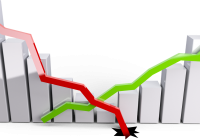To be eligible for a home loan, the borrower must pay the bank a sum of money as collateral. This amount, known as the personal contribution, is the borrower’s own contribution to the mortgage. Most lenders require borrowers to pay at least 10% of the cost of the property. With the own contribution, the lender reduces the risk of disappointment. The personal contribution also underlines the financial commitment of the borrower towards the property he wants to acquire.
Down payment, as the name suggests, is the amount you have to pay out of pocket to qualify for a home loan. By paying out of pocket, you not only reduce the lender’s risk, but you also underline your financial commitment to the property. This allows the lender to offset their risk and offer you a home loan for the remaining amount.
The amount of your own contribution depends on the overall cost of your furnished or unfurnished rental property. Usually, credit institutions also take into account other factors, including the overall duration of the loan as well as the opportunity cost of investing in other assets to determine the final amount of the own contribution.
For small home loans, the down payment can be as low as 10% of the total cost of the property. For loans involving larger amounts, the capital requirement can go up to 25%. As part of the Pinel system, you have tax relief, but you must still pay your personal contribution.
There is another device called “110% loan”. The latter allows you to obtain a mortgage with 0 € as a contribution if it is a rental investment or an investment in a second home. However, obtaining this type of loan is almost impossible in most credit institutions.
Before taking steps to obtain a home loan, you must determine your eligibility. This eligibility depends primarily on your ability to repay. The latter depends not only on your income, but also on your expenses and your employment situation. Of course, you have little chance of obtaining such a loan if you are unemployed.
In order to reduce the risk of insolvency, the credit institution must ensure that you are able to repay the loan on time. The higher your monthly income, the higher the amount banks can lend you. To calculate your eligibility, banks usually assume that around 50% of your monthly disposable income can be used to repay the loan you are going to take out.
To estimate the amount it will lend you, the bank will also take into account the repayment period and the interest rate. Your age is also a determining factor in your eligibility for a mortgage. Beyond a certain age, you cannot qualify for a home loan, because banks estimate that the probability that you will die before the maturity of the loan is high.

